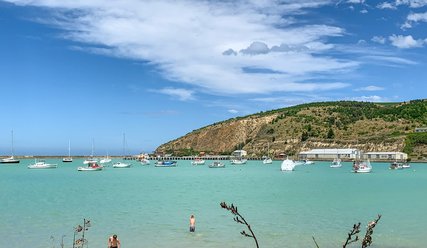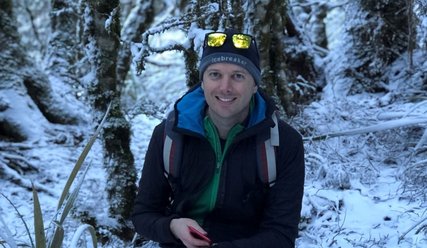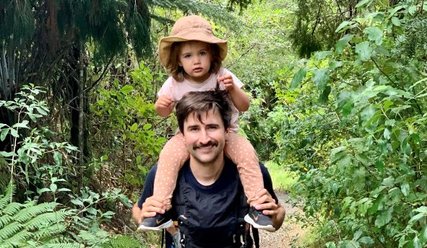A life dedicated to rural medicine
The wildlife may be very different in Zimbabwae to the New Zealand bush, but Dr Grahame Jelley says rural people have the same pragmatic approach to life and sense of community wherever you go.
And he should know, having worked in mission hospitals across Africa, with some of the most isolated communities on the South Island’s West Coast and on Aituataki, as part of a programme run by the College and the Cook Island’s Ministry of Health.
Grahame, along with his wife Renene, a nurse, and his young family, arrived in New Zealand nearly 20 years ago with just $78 in his pocket, escaping the terrible political and economic situation in his native Zimbabwae.
The couple had previously spent six months working near Westport, deciding if moving to New Zealand would be an option.
“It was very hard to leave everything we had worked for in Zimbabwe, our business, our families, our community,” says Grahame. “But we knew we had to get out and I will be forever grateful to New Zealand for the opportunity to come here and make a life for ourselves and our children.”
Grahame had built up a small solo general practice over nearly a decade near the town of Chipinge on the Eastern border of Zimbabwe and Mozambique. The practice included a small cottage hospital to provide inpatient care and radiography and laboratory services. He also spent one night a week at the 60-bed regional hospital in town.
“There is a mixed model of care in Africa,” he explains. “The public health service looks after the large indigenous population, while blue and white collar workers access private insurance services similar to Southern Cross here in New Zealand, paid for either individually or by an employer. It’s a clear two sector service. Serving both communities, as a doctor, you see patients from the different ends of the scale and the effects of poverty can be stark.””
He had also previously worked on a large sugar estate, as one of five GPs delivering inpatient and outpatient services to the more than 35,000 people that lived and worked there, as well as public health services such as Bilharzia and malaria control and early HIV interventions.
When the family arrived on Aotearoa’s shores in 2000 they lived for four years in Westport, working both in the general practice Buller Medical Service and within the Buller local rural hospital. At the end of 2004 they headed for the Bay of Plenty, where Grahame joined practices in
Whakatane and Opotiki, as well as taking on the clinical advisor role at Planning and Funding at the BOP DHB. His children, Courtney and Brendan, who were six and four, adjusted easily to the cooler temperatures after the heat of Africa, but found school very different.
They had been used to a very colonial style of education – a lot of learning things by rote,” says Grahame, “In New Zealand, they were encouraged to think for themselves and be independent, which is a much better way for children to learn.”
A period of ill-health saw Grahame stop work for a while, before taking up a locum position in Kerikeri, in the Bay of Islands. He enjoyed the place so much that when an opportunity arose to stay permanently he took it. He has also became clinical director for the Te Tai Tokerau PHO alongside his role in general practice. Grahame has been awarded Fellowship of the College and the Fellowship in Rural Hospital Medicine.
Ensuring that rural GPs are able to access the training they need to serve their patients is something he has a real passion for.
“GPs serving rural communities need a more general scope in their knowledge and skills,” he says. “We see things and have to deal with situations that urban doctors just don’t experience because the urban patient is often taken straight to a hospital.
“I have had to deal with several situations where the ambulance arrives on my clinic doorstep because it was the appropriate and closest service for the patient to receive care. But that’s the joy and the challenge in rural medicine, along with the benefits of living in a beautiful place with a real sense of community."


